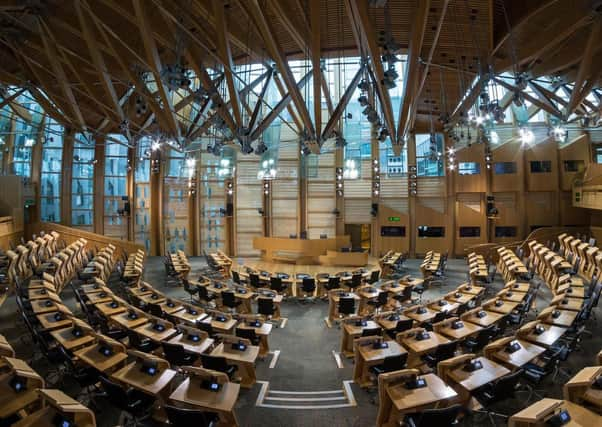Demands to change definition of who should qualify as a woman in Scots equality law


The Gender Representation on Public Boards Act (GRPBA) was passed in Holyrood two years ago, after being brought forward by then Cabinet Secretary Angela Constance, pictured right, and a consultation was held last year on draft regulations which would establish how progress is reported and draft statutory guidance on its operation.
However – six months later than expected – the consultation responses have been published. The majority of these focus on the government’s shift in how it defines what a woman is, and demands that it revert to the definition given in the Equality Act 2010, which outlines the protected characteristic of “sex”.
Advertisement
Hide AdAdvertisement
Hide AdThe report, by independent analysts EKOS Ltd, states that 310 responses in total were received, 272 from individuals and 38 from organisations. It adds: “It should be noted that much of the feedback focused on concerns raised regarding terminology and definitions used in the Act. More specifically, the term ‘gender’ and the definition of ‘woman’ for the purposes of the Act.”
While most respondents were in favour of how the government wants the Act to be implemented and reported on, when asked for further comment, the analysts said the main comments centred on the fact that “the definition used has extended the legal definition of ‘woman’ far beyond the Equality Act”.
The Equality Act defines a woman as a “female of any age”. However, the definition in the GRPBA includes “a person who has the protected characteristic of gender reassignment”, which would include transwomen, including those without a Gender Recognition Certificate.
The draft guidance expanded it further to include those “always using female pronouns; using a female name on official documents such as a driving licence or passport, or on utility bills or bank accounts; describing themselves and being described by others in written or other communication using female language”.
The definition has been supported by feminist advocacy group Engender, but criticised by other organisations including Woman’s Place UK and For Women Scotland.
Asked if the government might change its definition based on the responses, a spokesperson said: “We are carefully considering the responses to the consultation on the draft guidance and will update respondents and those bodies directly affected by the legislation in due course. The amendment defining the meaning of women in the Bill was voted for unanimously by the Parliamentary Committee scrutinising the legislation.”
Comments
Want to join the conversation? Please or to comment on this article.